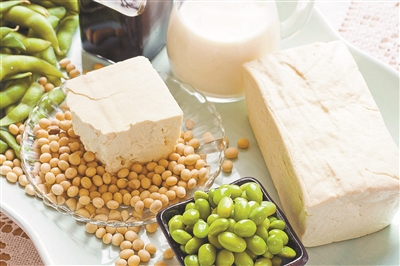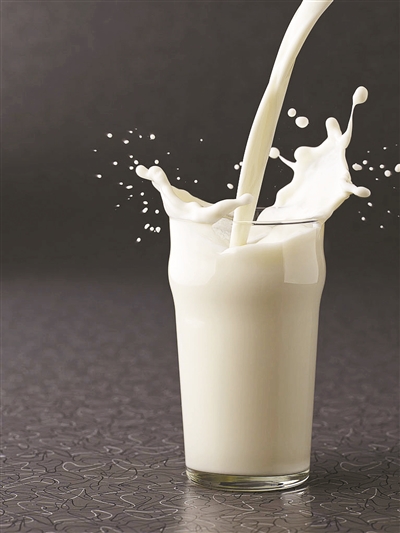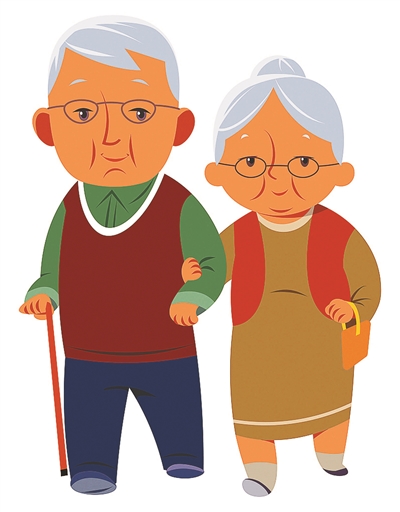How can the elderly eat to supplement calcium efficiently?



Just after the Double Ninth Festival, caring for the elderly is a fine tradition of our Chinese nation. With the acceleration of the aging process in China, we attach great importance to the nutritional problems of the elderly, and the most common health problem of the elderly at present is calcium deficiency. The physiological characteristics of the elderly determine that their calcium loss is accelerated and their calcium absorption capacity is reduced, resulting in a relative increase in calcium demand and insufficient calcium intake.
The calcium requirement of the elderly is higher than that of ordinary adults.
In China, the incidence of osteoporosis caused by calcium deficiency is close to 40% among the elderly over 60 years old, and the incidence of osteoporosis in women is higher, about 49%; Men are slightly lower, about 23%.
So, is the calcium content needed by the elderly different from that of ordinary adults? The recommended intake of calcium for adults is 800mg/ day, but the calcium requirement of the elderly is higher than this standard. According to "Reference Intake of Dietary Nutrients for China Residents (2013 Edition)", the recommended daily intake of calcium for people over 50 years old is 1000mg, but it should not exceed 2000mg.
Dietary intake is the most economical and reasonable method to supplement calcium.
There are two main ways to supplement calcium for the elderly: one is dietary intake, and the other is taking calcium agents. In fact, it is the most economical, safe and reasonable way to supplement calcium by taking a proper amount of calcium through a balanced diet. Foods rich in calcium in daily life include the following categories:
1. Milk and dairy products: A cup of milk+yogurt can meet half of the daily calcium demand.
Milk is the best source of calcium for human body, and the proportion of calcium and phosphorus is appropriate, which is beneficial to the absorption of calcium. Milk should be the main food for daily calcium supplementation. Other dairy products such as yogurt and cheese are also good sources of calcium. The calcium content of cheese is 799mg/100g, and that of milk is 107 mg/100 g.
The calcium content of milk can generally reach 100mg/100ml. Drinking a cup of milk (250ml) and a cup of yogurt (125ml) every day basically meets nearly half of the calcium demand.
2. beans and their products: after fermentation, they are more nutritious.
Soybean is a high-protein food with high calcium content. Especially fermented bean products are more nutritious, and the elderly may wish to eat more bean products.
3. Seafood such as fish, shrimp and shellfish: it belongs to high calcium food.
Shrimp skin, fish, kelp, small fish and shrimp that can be eaten with bones and shells are also high-calcium seafood. For example, the calcium content of shrimp reaches 325mg/100g.
4. Green leafy vegetables: a medium source of calcium.
Many common green leafy vegetables, such as Chinese cabbage, rape, fennel, coriander, celery, sherry, etc., can supplement calcium daily, and the calcium content of rape can reach 148mg/100g, which is considered to be relatively high in green leafy vegetables.
Taking calcium products can be used as a dietary supplement.
When it is difficult to get enough calcium from normal diet, an appropriate amount of calcium preparation should be supplemented.
1. Organic calcium is less irritating to the stomach and intestines and is suitable for the elderly.
According to solubility, we are often divided into: organic calcium and inorganic calcium. Among them — —
Organic calcium: such as calcium gluconate (9% calcium content), calcium lactate (13% calcium content), calcium citrate, calcium acetate (25% calcium content), calcium fructose, etc., have high solubility, and do not need the participation of gastric acid in the process of dissolution, so they are less irritating to gastrointestinal tract. Inorganic calcium: such as calcium carbonate (calcium content 40%), calcium phosphate, calcium chloride, calcium phosphate, etc. have low solubility and great irritation to gastrointestinal tract.
Therefore, elderly people with indigestion can give priority to calcium organic acid products. However, it should be noted that if you have diabetes, it is not recommended to choose calcium gluconate, and you can choose calcium citrate.
It is best to take it after meals, and do not drink strong tea, raw vegetables or alcohol before and after meals.
It is best to take calcium tablets after meals, which can minimize the impact on the digestive tract and prevent stomach discomfort or constipation.
Try not to drink strong tea, drink alcohol or eat raw vegetables before and after taking calcium tablets. These foods contain things that make calcium lose, which can form calcium oxalate crystals, which not only makes it difficult to absorb calcium, but also easily forms stones.
3. A few times, no more than 500 mg at a time.
Calcium intake should not exceed 500mg at a time, and the utilization rate will decrease if it is supplemented too much.
In terms of size, it is best to choose 100 -300 mg calcium tablets and take them two or three times a day, such as 200 mg once in the morning and 200 mg once in the evening. Don’t eat too much at one time.
4. Choose slender calcium tablets that are easy to swallow.
Old people can choose calcium supplement products that are easy to swallow, such as slender small calcium tablets, small chewable tablets and powdered calcium supplement products.
Make it five o’clock
Make it easier for the elderly to supplement calcium
Step 1 strengthen exercise
Physical exercise can deposit calcium into bones and prevent osteoporosis.
Physical exercise can also get sunlight, and ultraviolet rays in sunlight can turn dehydrocholesterol in the skin into vitamin D, which helps the absorption and utilization of calcium.
It is difficult for the elderly to make calcium supplements work if they don’t do some exercise that slightly stimulates the bones. Walking, square dancing and Tai Ji Chuan are good ways to exercise.
Step 2 get rid of bad habits
Smoking and drinking, irregular life, long-term fatigue or mental stress, endocrine diseases and gastrointestinal diseases are also not conducive to the absorption and utilization of calcium.
3. Drink less coffee and tea.
Caffeine antagonizes calcium absorption; Tannic acid in tea reacts with calcium to form water-insoluble calcium salt, which affects the absorption of calcium.
Step 4 get enough sleep
Adequate sleep is an effective measure to improve the speed of calcium absorption by the body. Therefore, the elderly who want to supplement calcium effectively should ensure adequate sleep time.
Step 5 supplement vitamin d at the same time
Last but not least, calcium needs vitamin D to be well absorbed by the body. Because the ability of the elderly to synthesize vitamin D is only 1/3 of that of young people, it is very necessary to supplement vitamin D when supplementing calcium.
You can choose calcium agent containing vitamin D at the same time, or supplement vitamin D preparation, 400IU— 600IU。
Text/Liu Fang (registered dietitian, intermediate dietitian, Department of Nutrition, Heping Hospital, Changzhi Medical College)